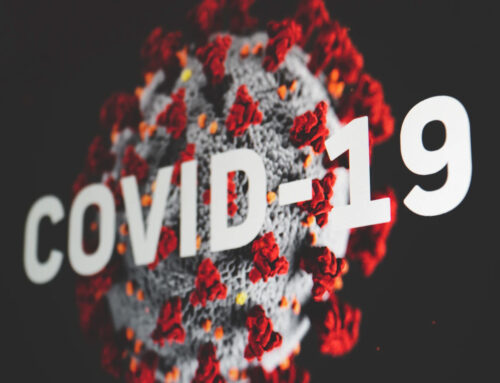A Chapter 7 bankruptcy can be a very powerful strategy for dealing with past due income taxes . A Chapter 7 can stop a tax garnishment, discharge older tax debt, and allow you to pay off newer taxes. A Chapter 7 will stop the IRS, the Oregon Department of Revenue (ODR), and/or any other state or local tax entity from garnishing your bank accounts and paychecks. The filing will stop a threatened tax lien from being recorded against your home and will stop threatening letters and phone calls for at least 90 days after the filing, and, in some cases, forever.
. A Chapter 7 can stop a tax garnishment, discharge older tax debt, and allow you to pay off newer taxes. A Chapter 7 will stop the IRS, the Oregon Department of Revenue (ODR), and/or any other state or local tax entity from garnishing your bank accounts and paychecks. The filing will stop a threatened tax lien from being recorded against your home and will stop threatening letters and phone calls for at least 90 days after the filing, and, in some cases, forever.
First, a Chapter 7 can discharge (write off permanently) an income tax debt if that debt meets a number of conditions, mostly related to how old the tax is. And second, as for taxes that don’t meet those conditions, Chapter 7 can discharge your other debts so that you can afford to enter into a reasonable monthly payment plan with the IRS and/or the ODR. And third, sometimes some taxes can be discharged and some cannot, so that Chapter 7 gets rid of some of your taxes and sets you up so you can make monthly payments on the rest.
Below are examples of each of the above three scenarios:
#1: Discharging Older Income Taxes
Hank lost his job in 2008 and after not being able to get another one quickly he decided to start a one-person business. He operated it for a year and a half, it made some money but not nearly as much as when he was employed, so as soon as he could find a decent job he closed down the business. His new job pays a little less than her previous job.
During the year and a half that Hank worked through his business, he simply did not make enough beyond survival expenses to pay any income taxes, so he owes both the IRS and the ODR for the 2008 and 2009 tax years. He filed his tax returns for those two years on time—on April 15, 2009 and April 15, 2010, respectively. He’s tried to pay on them as much as he could but still owes a combined $7,500, with interest and penalties. Because of the other debts that piled up while he was trying to run his business, and because of now makes less than with his earlier job, he hasn’t been able to make consistent payments on the taxes. The IRS has just started garnishing his wages, and he’s under a lot of pressure from the State of Oregon as well.
After getting advice from an experienced Portland bankruptcy attorney, Hank decides to file a Chapter 7 case. That immediately stops the IRS garnishment. In that bankruptcy case all of his tax debt—the 2008 and 2009 taxes, interest and penalties—are discharged—written off.
The 2008 and 2009 taxes are discharged because they meet the conditions for discharging income taxes: 1) the taxes are from a tax year for which the returns were due more than three years before his Chapter 7 case was file (the three-year period for the later year, 2009, ended on April 15, 2013); and 2) more than two years had passed since Hank actually filed the tax returns.
There are some other conditions to meet but they do not apply to his situation.
Thus, the Chapter 7 filing resolves both Hank’s immediate problem of the IRS garnishment and his entire tax problem by discharging all his past due taxes.
#2: Discharging Other Debts to Be Able to Pay the Newer Income Taxes
Consider the same facts except Hank did not file his 2008 and 2009 tax returns until just a few months ago because he knew he had no money to pay them. He’s not yet being garnished by the IRS. He has a lot of other debt, totaling $65,000 in unsecured debts, besides a vehicle loan and mortgage. Because of intense pressure by other creditors, including an ongoing garnishment of his wages by credit card creditor, he cannot afford to pay anything on the $7,500 that he owes to the IRS and ODR. He’s heard that they allow monthly payment plans but he has absolutely no money to pay.
In this scenario as well, Hank files a Chapter 7 case through his attorney. That immediately stops the garnishment by the credit card creditor, while also preventing the IRS and ODR from taking any collection action against him. His unsecured debts of $65,000 are all discharged in the bankruptcy case. He keeps his vehicle and home, because he is now able to afford to make his regular payments on them since he is no longer being garnished and doesn’t have to make monthly payments on his unsecured credit card debt (the minimum payments on $65,000 of credit card debt would be over $1000 a month).
Then just as soon as his Chapter 7 case is finished, Hank enters into monthly installment payment agreements with the IRS and the ODR to pay a combined $250 per month, which he can now afford to do. That pays off the $7,500 and accruing interest and penalties in about three years, during which time he also pays off his vehicle, leaving him debt-free except for his home mortgage. (The IRS is actually very easy to deal with in setting up affordable monthly payment plans. And, in some circumstances, a debtor may actually qualify for “currently uncollectable status,” which means that the debtor will not have to make monthly payments for a period of time and the IRS will not take collection action. Unlike the IRS, the ODR usually wants all of their past tax debt paid within 12 months. But, the good thing is that ODR tax debt is normally a lot less than IRS tax debt. In addition to payment plans for taxes that are not dischargeable after the bankruptcy is finished, an offer in compromise with the IRS and/or ODR may be an option.)
#3: Discharging Other Debts and Some Taxes to Be Able to Pay the Remaining Taxes
Now consider the same scenario as the first one above, except that Hank not only owes the $7,500 for 2008 and 2009 income taxes, but also owes another $4,000 in combined 2011 and 2012 income taxes. He also owes $65,000 in unsecured debts. His wages are being garnished by both a credit card creditor and the IRS.
Hank’s Chapter 7 filing would stop both paycheck garnishments. It would then discharge the $7,500 in older taxes but not the $4,000 in recent taxes (because they do not meet the 3-year condition stated above). His $65,000 in unsecured debt would be discharged. Then as soon as his Chapter 7 case is completed, Hank will enter into a monthly installment payment agreement with the IRS to deal with the remaining $4,000 tax debt, paying $200 per month to finish that off in about two years.
Conclusion
In each of these three examples, a Chapter 7 solved the tax problem. The much longer Chapter 13 was not needed. In the first example, the taxes were discharged and the entire debt problem was resolved in less than four months (normally a debtor in a chapter 7 case obtains his/her discharge after 90 days). In the other two examples, after 4 months all debts were discharged except for the vehicle and home, and except for the remaining IRS and ODR debt. That tax debt was then affordably paid off through a reasonable monthly payment plan directly with the IRS and the ODR.
The above information and examples are not meant to give specific legal advice. The information in this blog and examples are meant to give general information. Indeed the laws are always changing and everybody’s situation is unique. As with any legal issue involving potential bankruptcy, taxes, etc., it is always recommended that an individual meet with an experienced Portland bankruptcy lawyer to discuss their unique situation. Attorney, Adam M. Weiner, is an experienced Portland bankruptcy attorney and is always interested in helping empower people to gain more control over their financial lives (through knowledge, information, and, if appropriate, a chapter 7 or chapter 13 filing). And the result is reduced stress so individuals can more easily achieve the life that they desire.





